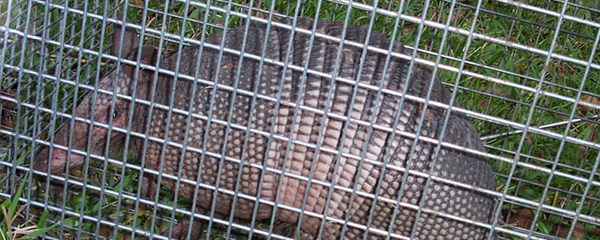- info@wildlife-removal.com
Call us for help in your town
Wildlife Removal Education
What Diseases Do Armadillos Carry?
Need armadillo removal in your hometown? We service over 500 USA locations! Click here to hire us in your town and check prices - updated for year 2020.
One of the distinctive aspects of the armadillo as a species is that the natural body temperature is actually a fair bit lower than that of most other animal species, and for this reason the number of diseases they can carry are actually quite low. However, the other factor to bear in mind is that those diseases that are carried by armadillos are quite serious, so you should be careful when dealing with any of these animals and keep any contact with the armadillo to a minimum.

Leprosy
Also known as Hansen's Disease, there are relatively few species that have a body temperature low enough to play host to the condition, but there have been some instances where this disease has been passed on to people. This is not something that can be transmitted by proximity alone, and in most cases where people have contracted leprosy they have either had physical contact or even eaten armadillo.
Rabies
Although the vast majority of the armadillo population do not carry the rabies virus, a small percentage of the armadillo population do, and again this is a disease that can only be transmitted through a scratch or a bite from the animal. Armadillos are normally very cautious around people, so if you encounter armadillos that are not too shy, or are excessively active during the day, then you may want to bear the possibility of rabies in mind.
Salmonella
This disease is one that is present in many animal species, and usually finds its way into the human food chain if food or water is contaminated by the armadillo. The real issue with salmonella is the effect it can have one people, as it can cause serious symptoms such as significant diarrhea and vomiting, and if it infects young children, elderly people or those with a vulnerable immune system, then it can be fatal in some cases.
Tapeworms
Although not a disease but a parasite, pets and people who come into contact with armadillo feces can contract tapeworms, which are usually transmitted as eggs, which will then develop within the intestine of the person or animal. These parasites will then siphon the food of the animal or person that makes it to the intestine, meaning that those who do have flatworms can find themselves losing weight or having intestinal problems, while these flatworms will then also lay their own legs, which can be transmitted on through the feces of the new host.
Do armadillos carry leprosy?
Go back to the Armadillo Removal page.


















